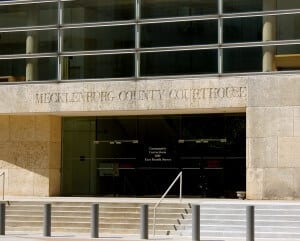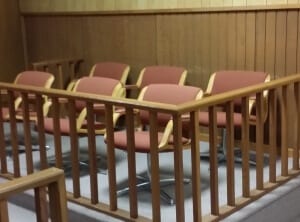 What to Expect in a DUI Jury Trial
What to Expect in a DUI Jury Trial
Because there is no plea bargaining in DWI cases, a DUI jury trial is often the only alternative. Other than simply pleading guilty. Rather, the commonly used phrase is “DWI or die.” However, where a defendant elects to plead guilty to DUI, the prosecutor will usually dismiss any accompanying charges such as speeding or other reason for the initial stop. As for the more serious DWI charge, your lawyer can only advise trying your case and presenting it before a judge (District Court) or jury (Superior Court). If you elect to plead guilty, your lawyer can help get your case ready and try to minimize the punishment level. The goal is to have a judge assess a Level 5 punishment level. Your lawyer can assist by making sure you get a current substance abuse assessment and complete the recommended treatment. In more serious cases where jail time is a possibility your attorney can advise you to get inpatient treatment and/or get a SCRAM device to show the court you are serious about turning your life around and no longer posing a safety risk on the road from drinking and driving.
District Court or Superior Court 
In Mecklenburg County, District Court is located on the fourth (4th) floor of the courthouse. Cases heard there are before a judge only (bench trial). Judges are elected in North Carolina. After 25 years of trying cases in both civil and criminal courts, I always prefer trying a case on the merits in front of a jury. Judges are best for legal motions where we contend there was some error in the stop and/or arrest procedure. For everything else, I prefer the dynamics of a group setting. In groups, you have a better opportunity to diffuse individual bias and prejudice. I also like the odds better. Always remember that only one (1) juror voting to acquit is enough to “hang the jury” and force the State to try your case again or then negotiate a lesser charge.
Superior Court is located on the fifth (5th) floor of the courthouse. While Superior Court judges are also elected, juries are derived from the voting rolls and represent the full spectrum of the Mecklenburg County residents. You can truly select a jury of your “peers” and have your case heard in open court. Jury trials are unique to our system of justice, and I am still a proponent after all of these years as a trial lawyer. A DUI jury trial is the best opportunity for fairness and justice. If a case is close, I almost always recommend serious consideration of going all the way to a jury.
The DUI Jury Trial Process
Picking the Jury
The first step in a DUI jury trial is selecting the jury. In North Carolina, twelve (12) potential jurors are randomly called and go sit in the “jury box.” The State then proceeds to ask a series of questions (“voir dire”) to learn more about their views and possible biases about criminal cases in general and DUI case in particular. If a juror indicates that they cannot be fair and impartial, they can be excused or “struck” from hearing the case. Likewise, once the State is finished with their questions, your DUI lawyer then has an opportunity to ask questions to similarly determine if the jury can be fair and impartial towards you. The emphasis and direction of the questions may differ, but the overall goal is the same. Once the jury is seated, the actual DUI trial will begin.
Opening Statements
Both sides are permitted to start the trial with an opening statement. The State, given its sole burden of proof at all times, goes first. Only an outlay of the facts is permitted. Neither lawyer can make arguments about the case. That time is at the end of the trial after all of the evidence has been presented. The State usually recites how the police stopped the driver, smelled alcohol, performed a DWI investigation including standardized field sobriety tests, and made the arrest based on their training and experience. The DUI defense lawyer usually highlights parts of the case that are weak and may even tend to show his client was not impaired. They also usually remind jurors about the State’s burden of proof and reasonable doubt issues.
 The Evidence
The Evidence
Again, the State goes first, and the defendant may choose not to present any independent evidence or witnesses. The burden of proof is at all times on the State of North Carolina. Evidence will be in several forms. You will have the live testimony of the arresting officer who will go through the stop and arrest process. They will explain how standardized field sobriety testing is administered and why the results are helpful in their determination of whether a driver is legally impaired. The State will also present the results of any breath, urine, or blood testing and submit documents showing the officer’s certifications to conduct such tests. They will also present the reports showing the blood alcohol concentration (BAC) results or other test findings. Finally, the State will show any videos taken from the patrol car and/or in the breath testing facility.
The defense lawyer will have an opportunity to question or “cross examine” the State’s witnesses. They challenge the arrest investigation and any procedural errors. DUI defense attorneys also try to cast doubt on the reliability of breath testing “science” as well as any “results” offered to prove impairment. They may also single out particular portions of the video evidence that show the defendant doing something that a “truly impaired” person should not be able to do. In the end, most DUI jury trials are about different segments of video evidence. Some segments support impairment and conviction while other segments may support acquittal. It is for the jury to ultimately decide who is guilty or not guilty.
Should the Defendant Testify at Trial
This is always a difficult dilemma. Persons charged with a crime have the legal right to not testify. And the judge will instruct the jury that not testifying should not be held against the defendant. However, most jurors want to hear “both sides” and may view not testifying in a negative light. It is the old adage that only guilty people refuse to take the stand. If you do choose to testify, you will be subject to cross examination by the prosecutor. You will have to answer questions truthfully under oath and penalty of perjury. In many cases, the potential negatives outweigh the potential positives. In the end, you should listen carefully to your DUI lawyer and follow their advice.
 Jury Deliberations and Verdict
Jury Deliberations and Verdict
After “closing arguments” where both sides debate the evidence presented, the Superior Court judge will “instruct” the jury on the law. They will literally read those portions of the law and DUI statutes that they will need to determine guilt or innocence. Once completed, the jury will go back and begin their deliberations. That simply means the jury will review the evidence together as a group and compare and contrast their individual views of the State’s case. At some point, after everyone has had a chance to voice their views and concerns, they will take a vote to determine a verdict. Several votes may be necessary to reach a unanimous verdict. Everyone must agree on the verdict. If everyone cannot agree, the judge will order them to continue deliberation until they can reach a decision. If the jury ultimately cannot agree, the judge will declare a “mistrial,” and the case will have to be tried again before a completely different jury. Or, the State, under these conditions, may be interested in negotiating a lesser charge.
DUI jury trials in Mecklenburg County usually take between 1 – 2 days depending on the case and evidence. In more serious cases where expert witnesses are called to testify, trials can last 2 – 3 days. It is an intense process but gives clients there very best opportunity for fairness and justice. When choosing a Charlotte DWI attorney, make sure your lawyer is prepared to go all the way if necessary to fight for your case.


 The Evidence
The Evidence Jury Deliberations and Verdict
Jury Deliberations and Verdict